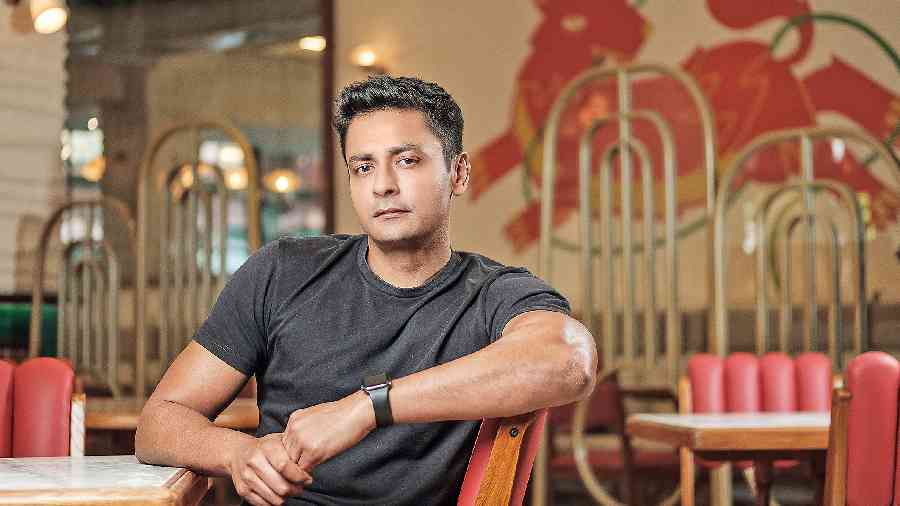Manu Chandra, the name needs no introduction for anyone remotely related or close to the F&B industry. There is, however, also a catch. Writing an introduction for him means adding endless accolades because he is relentless in his culinary pursuits. Manu is someone who loves reinventing himself time and again, pushing the boundaries and his abilities, only to reach newer heights.
After being associated with Olive Group of Restaurants and being the brain behind award-winning F&B brands such as Toast & Tonic, Monkey Bar and The Fatty Bao, Manu decided to move out in August 2021. In December 2021, he formed Manu Chandra Ventures, a Bengaluru-based hospitality company in partnership with long-time colleague and hospitality professional Chetan Rampal.
Next, he launched Single Thread Catering in mid-2022, a bespoke and experiential catering solutions company. There's more. Last year he rustled up delectable dishes at the 75th anniversary edition of the Festival de Cannes for Indian luminaries too! This year, Manu has been riding high on the success of his one-month-old European fine-dine restaurant, Lupa, in Bengaluru.
Before the chef, businessman and restaurateur got busy, again, t2 caught up with Manu on a Monday morning, talking about his new venture, the future of fine dining, and being inspired by Calcutta. Excerpts.
Congratulations on your new baby Lupa (first standalone restaurant under Savaa Ser Pvt Ltd - the restaurant company of the group). How is it going?
It's going well, certainly busy but, well. The response has been overwhelming, such an enthusiastic embrace from Day One. But like any new opening of a brand, it takes time to settle in, we need to figure out how the floors would work, and how people would react... and that's the rite of passage for any restaurant.
It's not an established brand where you keep repeating the formula. This isn't a formula. It's new. So, there is a settling-in period and I feel it's over now. So I think we are poised to be very smoothly functional this month onwards. If the reservation is an indicator, then it's great going as it's filling up on Monday nights also.
Since you mentioned formulas, do you think they work?
Of course formulas work, that's why they are called formulas. But that's not necessarily what the drive for creative people is. We want to be able to differentiate our spaces and products from whatever else exists. That takes a certain level of thinking, programming, calculation, and a fair amount of talent and skill. When it's a new territory you need to make sure that you have something which is aspirational and comfortable as well, especially when you are operating at a size that we have. And I have always been very cognisant of that. I think I live in a city that is not a tourist destination. I live in a city where I rely on patronage and regular customers. So I need to fulfil their needs and desires at some level also. I think that was the big ask of the brand and what we are working our way through. I will go into a menu change...
Already?
Yes, I always do that. After I open, within a month I always access things and check what's working, and what we can improve upon because no matter how many times we do this, no one is perfect. You have to be more humble about it. So we assess what needs to be changed, what needs layering.. if something needs to be added or removed... and then we do our trials and relaunch our menu afresh.
Coming to Lupa, the architecture and vibe is stunning...
Thank you. Lupa is located at the heart of Bengaluru’s iconic M.G. Road. It brings together classic European flavours with contemporary flair, an impressive repertoire of wines and inventive cocktails. Named after the mythological La Lupa, Italian for ‘the she-wolf’, who raised Romulus and Remus, the founders of the modern city of Rome, Lupa, unabashedly imbibes her untameable spirit.
Designed by Jatin Hukkeri of WDA Spaces, Lupa is spread across a sprawling 11,000sq ft space. It has a beautiful courtyard, indoor dining area that has a beautiful bar, a mezzanine section that is the private dining area and outdoor deck. Decor-wise it is warm, spacious, open and stunning and comforting at the same time, offering a unique dining experience.
The restaurant pays tribute to European cuisine. Why did you delve deep into this cuisine?
Of course! They have been ready for the longest time, I have been doing this for 18 years and they were ready then also. I mean how many pizza outlets do you see every day? That's not Indian food, right? How often do you go out and eat nachos? We have embraced Western cuisine two decades ago, so it's not new, it's only elevated! People travel, they are well-exposed, I have been doing this for a long time and made my name in it, it's not like I must do Indian food to be relevant because I don't think that's necessary. I am doing what I am proficient at, and comfortable with. I know my supply chains and it's very hard because supply chains in Western cuisine are much harder because the product needs to be fresh. Like in a salad, the lettuce needs to be fresh and you don't go to an Indian restaurant to eat a nice green leafy salad. So the processes are much harder in that sense but it's also something that I have always enjoyed doing and I find it very challenging.
So coming to the question, yes they were ready, it was all about how ready and what sort of product. I feel Lupa upgraded that in many ways and people are very happy to embrace it.
Talking about procuring the right and the freshest of produce, how difficult is it when you are dealing with Single Thread, the bespoke catering company, and doing something abroad?
Single Thread, of course, I mean I found a gap in the market and there was a need to fulfil that gap and things came around at the right time, it was post-pandemic, things were opening up... setting higher benchmark and at that time, of course, I was approached by Diageo, which was the beverage partner at the Cannes Film Festival, and that's how catering at the India Pavilion at Cannes happened. It was a great exposure, a great experience and very challenging.
What would you say is a global catering trend or a food trend that is going to be big?
I don't know... I don't see any trends. See, it was a year of the millet in India. So, people have been talking about it a lot but it's hard to say it's a trend because then there is no point calling it the Year of the Millet, something that needs to be promoted long-term. Trends come and go and those days are gone when a big ice cream shake was a cool trend and then it disappeared.
Would you agree or disagree that these fads work, when avocados started trending, and every place was doing something with it? And with a varied population like ours, wouldn't you agree that these trends do attract a lot of clients?
I am sure it is, it's a great way to make quick bucks, but that doesn't have sustainability and longevity in it.
But coming to the question of what's trending we know that we are still in that post-pandemic euphoric phase where everyone is going out and emptying their pockets because they realised that you only live once, right? So trends right now don't matter, you can sell panipuri and people will still flock to you because they are now in that phase where they want to go out, want to enjoy life and live it up. Restaurants and food delivery businesses are all at an all-time high.
I do feel 2023 and 2024 are going to be the years where we see a huge revival in the business, more people step up to the plate, we see new entrepreneurs, new brands and more talent flowing through great bread places, excellent coffee everywhere.... So, for me, I feel it's a year of the upgrade more than anything else.
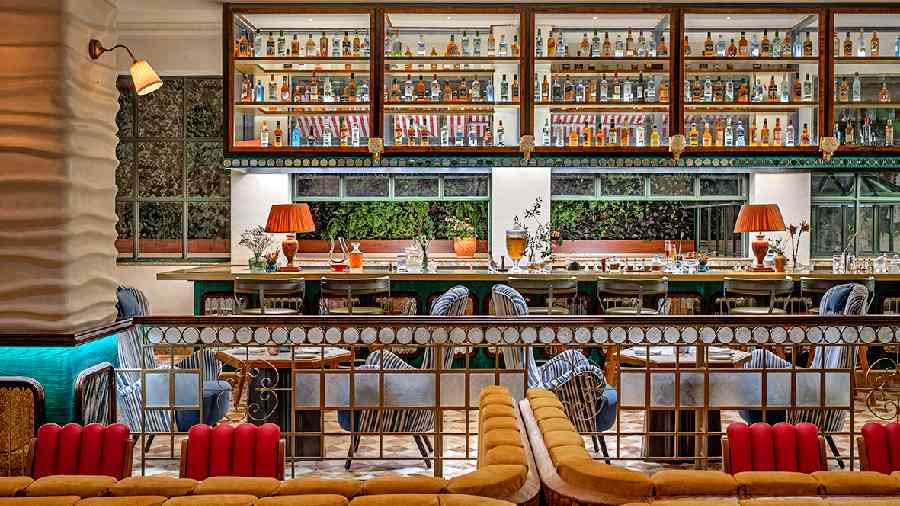
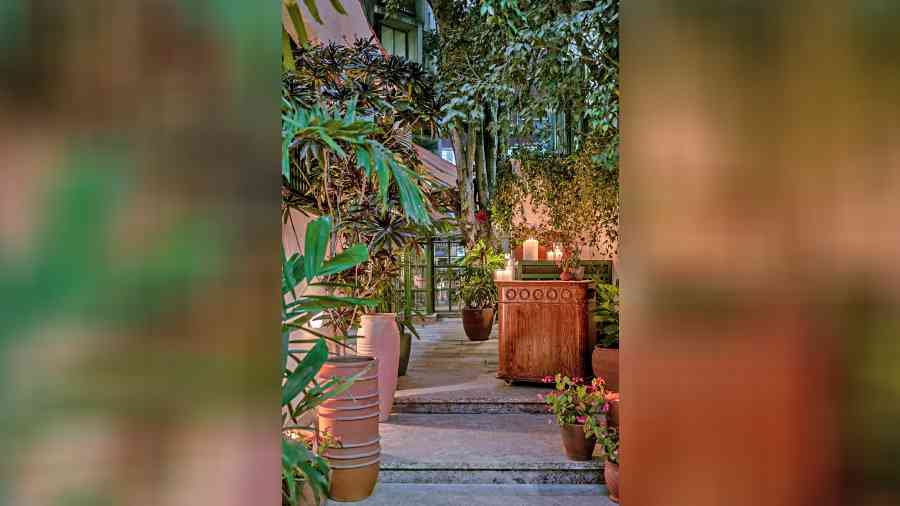
Lupa is located at the heart of Bengaluru’s iconic M.G. Road. It brings together classic European flavours with contemporary flair, an impressive repertoire of wines and inventive cocktails... Decor wise it is warm, spacious, open and is stunning and comforting at the same time, offering a unique dining experience — Manu Chandra Interior pictures: Kuber Shah
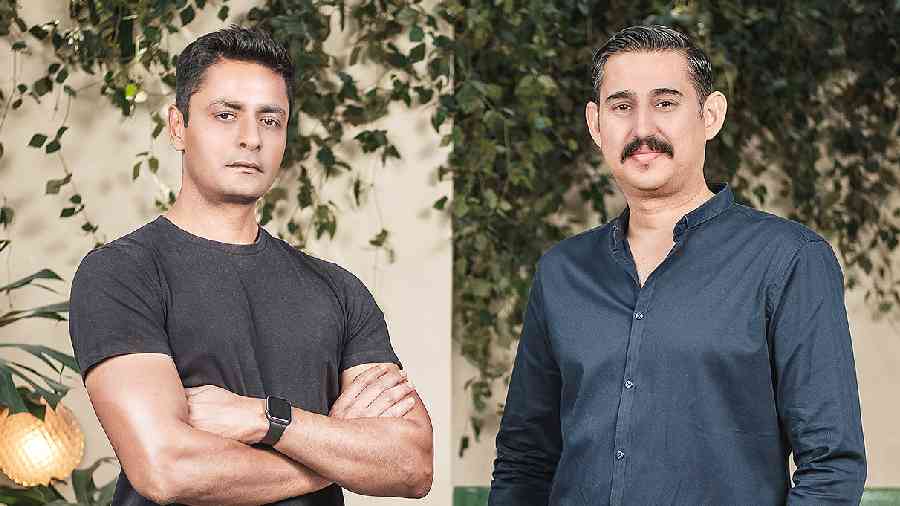
Chef Manu Chandra and Chetan Rampal, the founders and partners at Manu Chandra Ventures. Picture: Nishant Ratnakar
What is your forecast for the future of fine dining?
I think it will thrive! There is a lot of press going around saying that fine-dining is dying, but I am telling you that it is going to thrive...the country is becoming wealthier, people are making more money, (getting) more exposed, they want elevated experiences. Instead of three mediocre experiences, they want to go and have a nice one. People now understand that and they are willing to pay a little extra for it.
We know that you are busy with Lupa, but tell us where Calcutta figures in your map of work with respect to expansion.
We have been there and done that. We are too new to start something there now. I am not in a very aggressive growth trajectory right now. I feel that for me the establishment of the brand and products is very important. With Single Thread, we have the capability of travelling anywhere and we are... like we are off to Paris and we were at Davos at the World Economic Forum.
So we are getting to the right places and Calcutta is as right as it can get, so yes if anyone calls us, and invites us to do something over there we are very happy to go. We have done Delhi, Mumbai, Coimbatore, and Chennai... so I think that would be an easier way to get there right now than a restaurant brand.
Then again as the restaurant gets more established and settled, I am not saying we won't go there but it's not an immediate plan.
Anything else you would like to share with your readers in Calcutta?
Lupa, even though it is European, given that I am very inspired by Bengal, has influences like I have a fish dish where the sauce is made of kasundi. Then do I have beckti on the menu? I do. Are we gonna use Bandel on pasta somewhere to make it smoky? We do. So we have always been inspired by Calcutta, its food, cuisine and so many Bengalis who work for me... there's always a deep connection with the city and it reflects in myriad ways without obviously being Bengali but it's there in the backdrop!
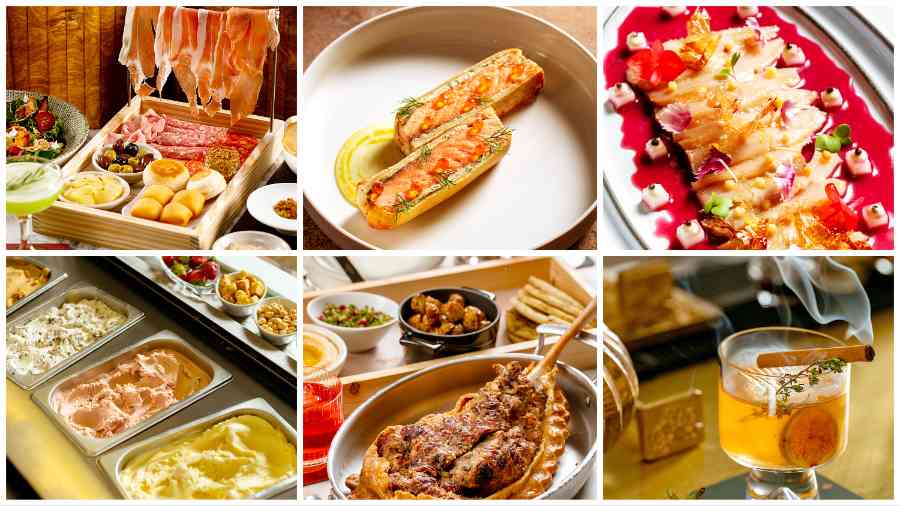
(Clockwise from top left) Salumi Platter at Lupa, Baked Salmon at Lupa, Hamachi Crudo at Lupa, The range of gelatos at Lupa, Sea Salt Baked Lamb Leg at Lupa, The Notorious F.I.G at Lupa. Food pictures: Assad Dadan
Lupa’s menu is rooted in a trans-European style celebrating biodiversity, sustainability and a varied range of cooking skills. Led by culinary director, chef Prashanth Puttaswamy, who brings his expertise developed over 20 years, the cuisine at Lupa honours European flavours but with a keen eye on inventiveness and innovation. The menu offers interesting dishes like Baked Salmon, Sea Salt-baked Lamb Leg, Hamachi Crudo and Salumi Platter. It also houses a mini Gelato Lab.
